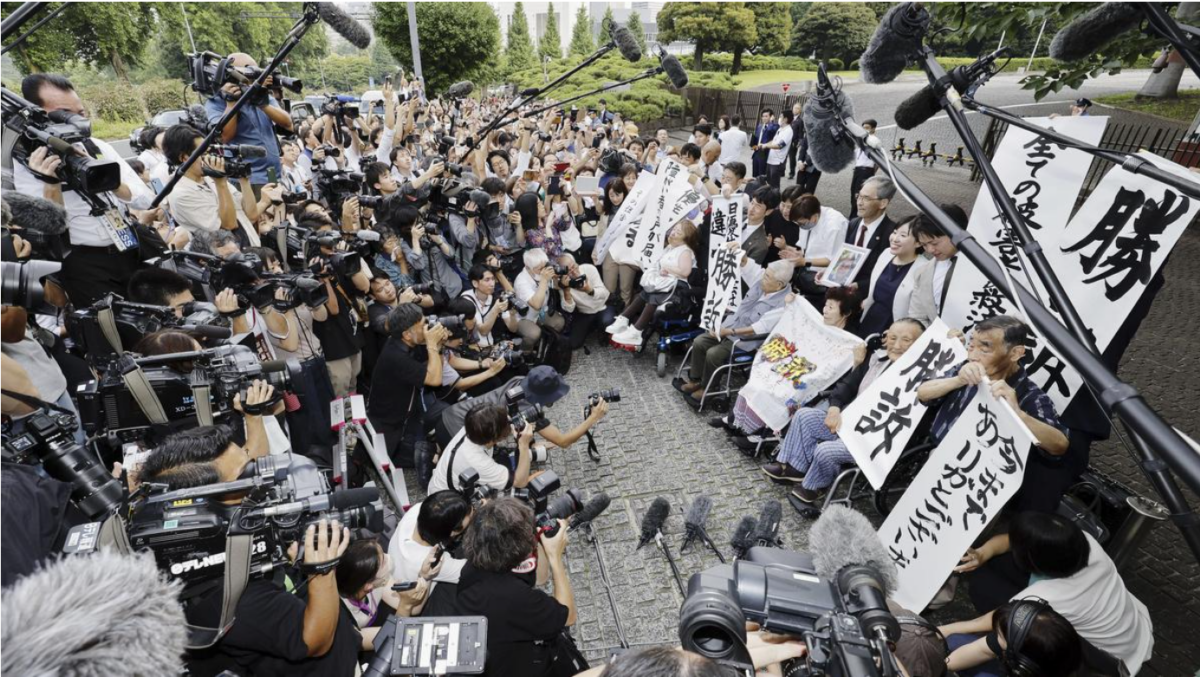An outdated eugenics statute was declared unlawful by Japan’s highest court on Wednesday. The law was observed to have resulted in 16,500 disabled persons being forcibly sterilized between the years of 1950s and 1990s. The historic decision on Wednesday puts an end to the victims’ decades-long quest for justice, during which they rightfully demanded reparations and an apology. All the fifteen judges unanimously decided upon the case, and they also cited violations of constitutional rights to bodily autonomy and equality.
The decision was made over a case of five lawsuits in which the plaintiffs sought compensation. Saburo Tokura, the judge, ruled that the sterilization surgeries were done with no rational reasons that could justify the act. He also added that the performance of these surgeries was clearly an act of discrimination against the plaintiff’s due to their disabilities. Thus the above judgement will pave the way for compensation claims from victims after years of legal battles. Eleven victims—who were involved in five cases that were considered on appeal—were ordered by the Japanese Supreme Court to receive compensation from the government.
“For the state to evade responsibility for damages payments would be extremely unfair, unjust, and absolutely intolerable,” said the top court in Tokyo. The Prime Minister of Japan, Fumio Kishida, expressed sincere and profound regret over the gruesome violations that had happened. He expressed his intend to meet with the plaintiffs as well, according to local sources. Chief Cabinet Secretary Yoshimasa Hayashi assured that the government would promptly offer compensation for the victims.
Eugenic Protection Law
The statute mentioned above was enacted in 1948, and it was repealed in 1996. According to the law, those who were deemed “inferior” were to be prevented from having children by undergoing surgeries and treatments. These measures were taken by the government, specifically with people who had inheritable disabilities.
The government and concerned authorities in Japan have agreed to the fact that the sterilization procedures were performed largely without consent. There have been claims that those who underwent the procedure giving the consent were more or less acting upon a “de facto forced” consent because of the pressure they faced by society at the time.
Long Fight for Justice
After lawsuits that took years, in 2019 a law was finally put in place that granted the surviving victims of such a draconian law the damages. However, some of them continued to fight for higher compensation. Japan had previously rejected the demands for compensation, highlighting that the law was in effect during that time period and, thus, not illegal. The plaintiffs have filed lawsuits in various Japanese courts since the year 2018.
The central government had appealed against the compensation decisions made by the lower courts in four cases presented before the court previously. In the fifth case, the lower court invoked the statute of limitations in response to an appeal filed by two female plaintiffs against dismissing their claims. The Japanese parliament had passed a law in 2019 to pay compensation to people who underwent forced sterilization procedures.
A number of people in wheelchairs were seen outside the court after the ruling, holding up signs that read “thank you” and “victory”. Plaintiffs expressed their joy after hearing the ruling on Wednesday.
